Before we were even engaged, my husband and I talked about the ways in which we would raise our children in a Jewish home. We talked about how we were going to have family Shabbat dinners every Friday night, send our future kids to Sunday and Hebrew school and celebrate their b'nai mitzvahs on top of Masada.
Our excitement and commitment to raise Jewish children was amplified when we found out that we were expecting our first child, a boy. We started imagining plans for the bris and thinking about what his Hebrew name might be. We also followed Jewish tradition and superstition when it came to preparing for his arrival. We kept most baby items out of the house, we did not share his name, and we did not have a baby shower; we wanted to raise our child in a Jewish way from the very beginning.
At a routine doctor's appointment, my obstetrician asked about fetal movement. I had stopped feeling movement a few weeks prior, but figured that there was no reason to worry. I never even considered that it was a possibility that my baby might not be alive. I told him that I had not felt movement since the last time I had spoken to him, and he decided to perform an ultrasound. Immediately, I knew that something was very, very wrong. Our baby no longer had a heartbeat.
Three days later, on September 11, 2014, our son, Bernie, was stillborn. My husband and I were able to spend a few precious moments with him; our rabbi had made the trek to the hospital and was also able to see our son and be with us. We learned that Bernie had died from an umbilical cord accident -- a "fluke." It was a complete shock to us. We had done everything "right." I was healthy during my pregnancy, we adhered to Jewish tradition -- how could this happen?
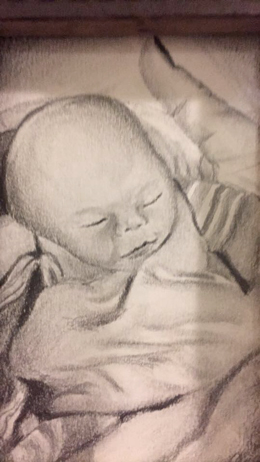
From that moment on, our life -- notably our Jewish life -- changed. My husband and I could not think about God let alone figure out how God would have allowed our sweet, innocent baby to be taken away from us. We began to think about everything that we could have done wrong in our lives. We wracked our brains; we blamed ourselves. Did I eat the wrong things? Did I sleep the wrong way? Was I too active during the pregnancy?
We had a difficult time attending synagogue. When the High Holidays came, I was not able to participate. I wondered how I could possibly celebrate holidays in which only the "unworthy" are written in the book of death. Was my son unworthy? Passover was especially difficult. Thinking of firstborn sons being taken away from anyone made my blood boil. I did not believe that the death of a child should ever serve as a lesson.
Our hearts and our faith were broken.
Three months after Bernie was born, his sister was conceived. We were on vacation when we saw those two pink lines on a pregnancy test. The tears we cried were a mix of joy and paralyzing fear, a fear of knowing too well that the promise of a living baby is a promise that can be broken.
My pregnancy was full of anxiety, comparisons and benchmarks. We were not able to enjoy the journey because we were constantly anticipating the unthinkable to repeat itself. It was not until our "rainbow" baby was born that we would breathe again.
The miracle that is our daughter, Viviene, coming into this world alive was nothing short of a religious experience. To have a healthy, living child involves millions of factors. Not to acknowledge our overwhelming feeling that something bigger than anything humans can explain had a hand in our daughter's birth would be to ignore a huge part of what, at that moment, became our renewed faith.
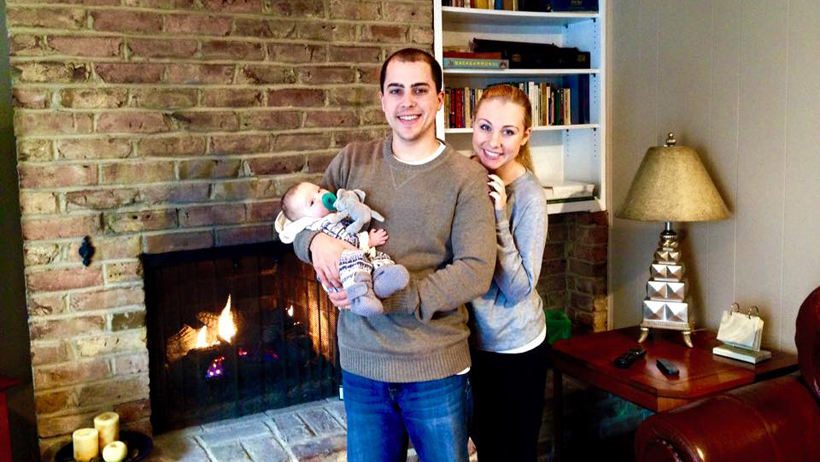
As we relished in the first few months with our daughter at home, we realized how much we were still raising our son. The day that Bernie came into our lives, our purpose in life changed. It is our job, as his parents, to honor him every single day. We think about daily, we commemorate the day he was born and we talk about him with his sister. He will always be our firstborn.
We feel that it is important for the world to remember our son too, as he continues to have an impact even after his passing. It was only after Viviene was born that we realized just how important it was to raise our children Jewish. Yes, we have more questions now than when we were somewhat naively expecting our first child, but we are lucky to have rabbis who are warm and loving and happy to discuss our questions with us. Our synagogue has made a conscious effort to include our son and to honor his memory, and that is something that my family and I will always be so grateful for.
We do not subscribe to the theory that "everything happens for a reason." Many people do, and while I respect religious differences, I vehemently reject that sentiment as it applies to my family. We do not acknowledge that our daughter might not be here if our son were still alive. That very notion suggests we had to choose between our children, which is an impossibility that I do not believe God would ever ask of us. Saying that everything happens for a reason diminishes the wonder, the tragedy and the beauty in the randomness of life.
There are many sentiments like these cloaked in religion that my husband and I reject, but our faith is strong. Our commitment to Judaism and raising our children in a Jewish home has brought about a certain amount of comfort. Attending synagogue where our son's name written in the sanctuary is something that we now look forward to. Family Shabbat dinners have become a time when we can gather with the family that is here with us physically, and still feel the presence of those who are no longer tangibly with us.
The way that we view our Jewish life has changed since 2014, but the fact is that the importance of Jewish faith in our lives has not changed. For centuries, our families have defended Judaism, even died for their faith. We want to honor all of our ancestors, our grandparents who survived the Holocaust, and our son who we have to believe is in heaven, by continuing our proud Jewish ancestry.
Taylor Clearfield is a Chicago-area doula navigating parenthood after loss. Find her at www.taylorclearfield.com or on Facebook.
Read more stories in the "Bringing Up (Jewish) Baby" blog series at www.oychicago.com/baby.
"Bringing Up (Jewish) Baby" is being produced in partnership with jBaby Chicago, which helps expectant parents and families of newborns and tots (0-24 months) make connection, build friendships and engage in Jewish life in Chicago.
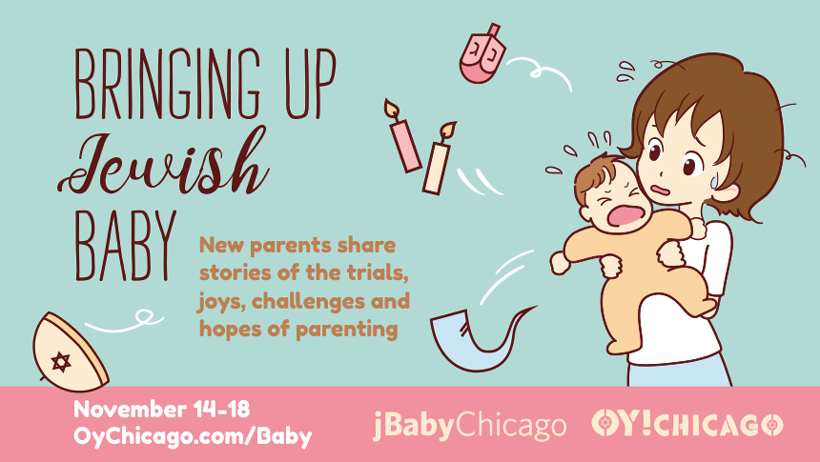



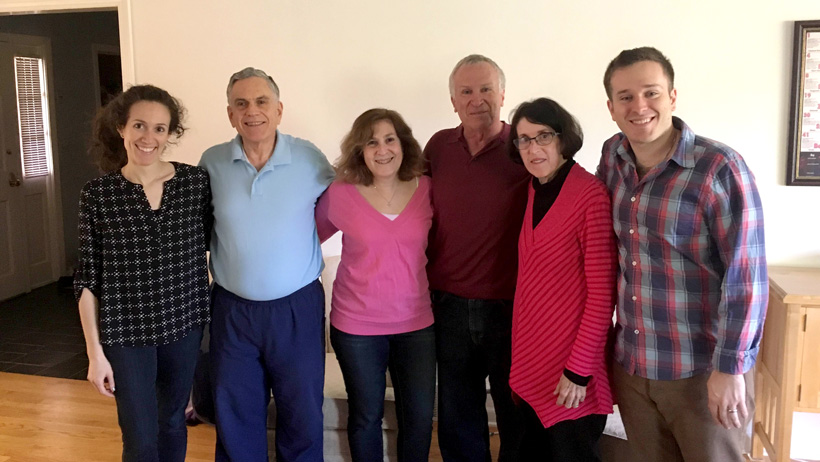
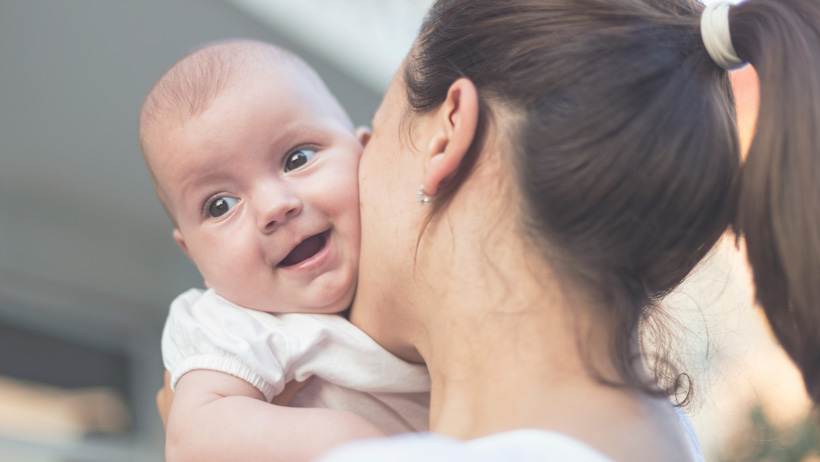
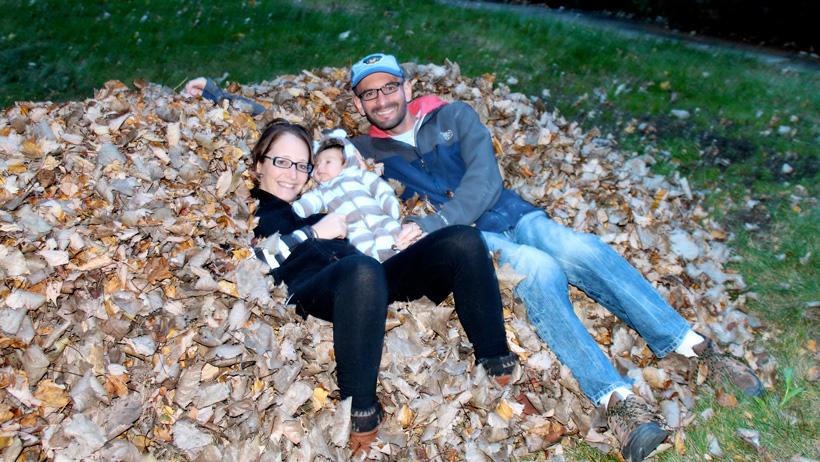
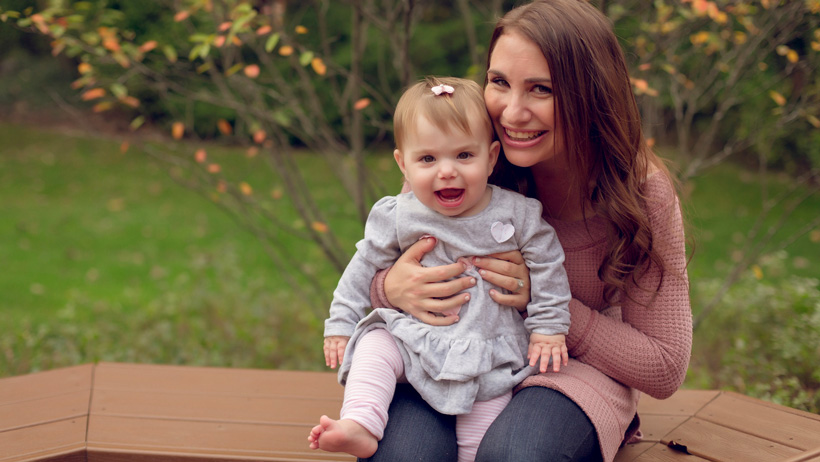

.jpg)



